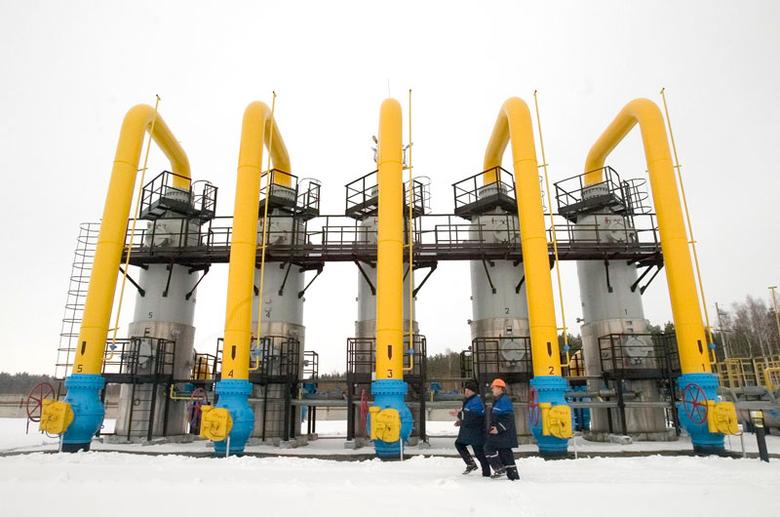
EU GAS PRICES DECLINES

European natural gas will probably extend declines as lower prices for the liquefied fuel in Asia, the biggest buying region, mean more cargoes head to Europe, according to Vattenfall AB, the Nordic region's largest utility.
Gas prices in the Netherlands, Europe's second-biggest traded market, will probably fall further as LNG supplies increase, according to Frank van Doorn, head of gas trading at Vattenfall Energy Trading Netherlands NV.
European LNG supplies will rise by 17% this year as converging global gas prices discourage reloading of cargoes for other markets, estimates Paris-based lender Societe Generale SA.
"There could be more downside," Van Doorn of Vattenfall, the Netherlands's largest retail gas supplier, said in an interview at the European Gas Conference in Vienna. "What we can see is that there could be a lot more LNG coming to Europe, and we can already see the first signs of that. That, of course, changes the supply-and-demand balance."
Dutch month-ahead gas prices slid 23% in 2014 as Europe's mildest year on record cut demand, according to broker data compiled by Bloomberg. Gas consumption in eight European countries accounting for 63% of the region's demand fell 13% last year, the most since Societe Generale started tracking the data.
Super-Chilled
Europe will get more LNG as the premium for Asian cargoes fell to the lowest since 2011, meaning Qatar, the world's largest producer, will be shipping more of the super-chilled fuel to Europe, Van Doorn said. It's no longer profitable to redirect LNG cargoes to Asia from the Atlantic basin, Andree Stracke, head of global gas and LNG origination at RWE Supply & Trading, said at the conference.
"The prices in Asia are falling for a reason," Van Doorn said. "It's either demand, supply or both, which means that the swing supplier to the market, Qatar, is left with sending more cargoes to Europe. How much LNG will come into Europe at the end of the day, it's hard to say, but it will for sure have a depressing effect on prices."
Dutch fuel for next-month delivery slid 1.2% this year to 20.70 euros ($23.39) a megawatt-hour on the Title Transfer Facility hub. Spot LNG cargoes for delivery in six to eight weeks to northeast Asia fell to $7.50/MMBtu, the lowest level since June 2010, in the week to Jan. 26, according to World Gas Intelligence data.
Power Usage
Gas prices in most of Europe are unlikely to drop to levels that would spur use by power producers, according to Vattenfall, the Netherlands' biggest electricity supplier. Utilities in Germany are losing 9.59 euros a megawatt-hour for power from gas-fed plants next month, while those in the UK are earning 1.90 pounds ($2.87) a megawatt-hour, broker and exchange data compiled by Bloomberg show. German utilities burning coal for power next month are earning 8.40 euros a megawatt-hour.
"The coal-switch price is so high, that means gas prices have to go down so much to make it profitable to switch," said Van Doorn. "The spark spreads are so negative that there need to be big changes before we see more gas going into power generation. The UK is probably the exception."
While Dutch gas may fall on increased LNG supplies, prices are unlikely to drop below last year's lows of around 16 euros a megawatt-hour, according to Vattenfall. Northwest Europe received 13 LNG cargoes in January, the most since 2012, according to port authorities and ship-tracking data compiled by Bloomberg. Another three cargoes are scheduled to arrive at the Belgian port of Zeebrugge next month, the data showed.
"The LNG prices are converging, and it seems like we will get a lot more Qatari cargoes coming to Zeebrugge in February," Van Doorn said. "It's fair to say last year that when we had the drop to 16 euros, it was more than anything else caused by the warm winter. The winter now is going to be much more average, so the chances of seeing the same kind of developments as last year are pretty small."
gasprocessingnews.com





